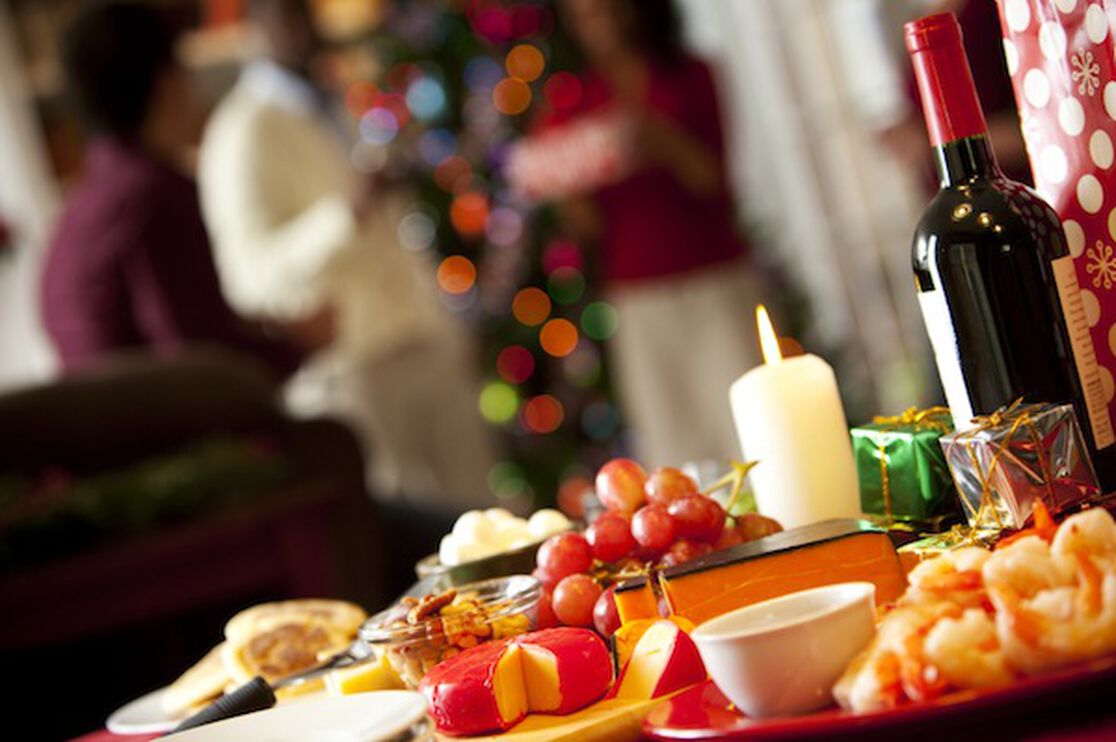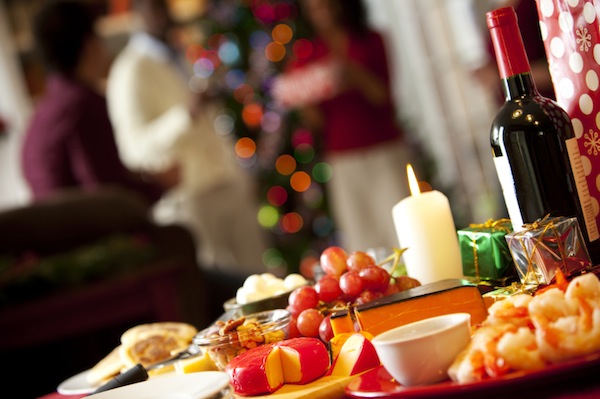Celebrating holidays that revolve around food can be extremely challenging and stressful for families of children with food allergies and celiac disease. The traditional holiday meal can have many risks, especially if they are prepared outside of your home. What can you do to protect your children and/or yourself or a loved one? First let’s get up to date on the facts.
Food allergy occurs when the immune system mistakenly attacks a food protein. Eating the offending food may trigger the sudden release of chemicals, including histamine, resulting in symptoms of an allergic reaction. Scientists estimate that as many as 15 million Americans suffer from food allergies. The highest incidence is in children under three years of age where 1 in 17 is affected. It’s possible to be allergic to just about anything; however, the eight most allergenic foods (which account for 90% of food allergies) are: milk, soy, eggs, wheat, peanuts, tree nuts, fish and shellfish. Since there is no cure for food allergies, the best remedy is to avoid the allergen at all costs!
Research has shown that between 1997 and 2002 the number of children with a peanut allergy doubled. The reason for the drastic increase in the number of children and adults with food allergies is not fully understood. There are many theories, but much more research needs to be completed to come to a better conclusion. Whether it’s because we are too clean (The “Hygiene” Hypothesis) or whether it’s due to genetically modified foods or pesticides (our bodies are not able to recognize the foods and therefore we are reacting to foods as if they are “foreign substances”), the bottom line is that we all need to be aware that this is a huge epidemic. To keep our children and family members safe, we need to be educated about and sympathetic to those who have different dietary needs.
Celiac Disease affects one in 133 Americans; however, most cases are undiagnosed! Celiac disease is a multi-system and multi-symptom disorder that comes about when an affected person ingests gluten. What’s gluten, you ask? Gluten is the protein found in wheat, rye, and barley. People who are on a “gluten-free diet” (the treatment for Celiac Disease) cannot have anything with wheat, rye, barley, or their derivatives. Symptoms of Celiac Disease are not always gastrointestinal (as once thought) and can include diarrhea, constipation, fatigue, anemia, bloating, gas, infertility, weight loss, osteoporosis, and depression.
How can we keep our children or family members with food allergies or Celiac Disease safe during this holiday season?
Here are some helpful strategies:
- Inform your Guests: The easiest way to keep the meal very safe is to host your own holiday party. This way, you know exactly what is being prepared and how it is being prepared! It is also essential to make sure that those who are coming to your holiday party know about your or your child’s food restrictions. Many people want to be helpful and do not know that a small amount of an offending food could cause a serious reaction. If they want to bring something, politely ask them to bring something safe—perhaps a bottle of wine that goes nicely with the meal or maybe some fun cups that are holiday themed for the kids table.
- Be a Good Guest: If you are going to another party, offer to bring something. For example, homemade holiday cookies or an appetizer. It is also helpful to bring a separate meal for yourself or your child if you have severe food restrictions. Also, make sure to mention hidden hazards, again politely. For example, if your child is severely allergic to nuts, you can ask your host to put any bowls of nuts or candy containing nuts away for the evening and explain why.
- Be Safe: For a younger child, use a high chair or booster seat with a tray if the child’s allergens are being served and for older children help them by serving their food to avoid cross contamination. Always carry your Epi-Pen and other necessary medications in case of an emergency. Monitor your child to avoid accidental exposures!
- Eat in Advance: if you are going to a small party and are not sure if there will be “safe food,” have a snack or light meal beforehand so that you don’t run the risk of not having anything that is safe for you or your child to eat.
- Travel Safely: If your plans take you away from home, bring safe snacks and carry your medications (and a doctor's note, if necessary) with you at all times.
- School Parties: Try to be on the planning committee, so that you can be sure that there are safe activities and/or foods for your child, attend the party to monitor the situation, and offer to bring the food so that you know that it is safe!
Helpful Web sites for food allergies and celiac disease:
- The Food Allergy & Anaphylaxis Network (FAAN)
- The American Academy of Allergy Asthma & Immunology
- AllergyKids
- Kids With Food Allergies
- FaanKids
- AllergicChild
- Celiac Disease Foundation
~ Nicole Meadow, MPN, RD of NutritionWise
This post is solely for informational purposes. It is not intended nor implied to be a substitute for medical advice. Before undertaking any course of treatment or dietary changes, you should seek the advice of your physician or other health care provider.
We aim to provide you with the most honest and credible information possible. This article was reviewed for accuracy by The Honest Team and was written based on sources that are linked at the bottom of the article.
blog_review_statement




